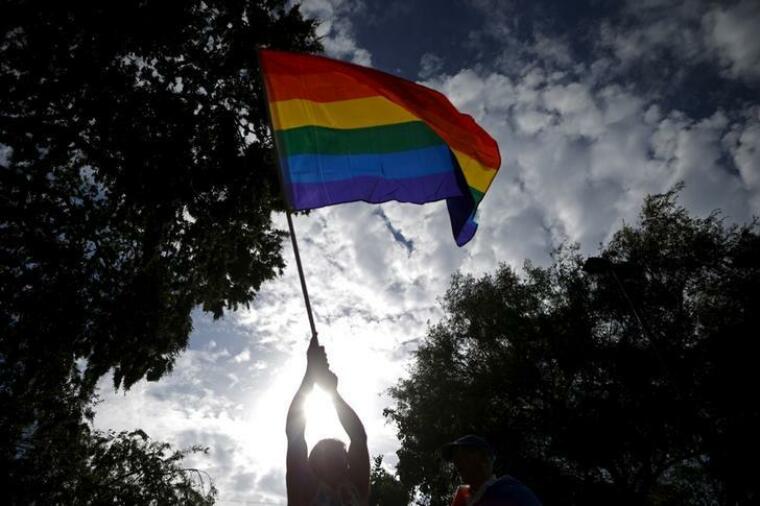No scientific evidence that people are born gay, lesbian or transgender, researchers conclude
Johns Hopkins University scholars said there is no definitive scientific evidence that gay, lesbian and transgender people are born with a fixed gender identity or sexual orientation.
This was the main argument of a three-part 143-page report published by The New Atlantis.

The report was written by written by Dr. Lawrence S. Mayer and Dr. Paul R. McHugh. Both doctors took on the claims that sexual orientation and gender dysphoria are caused by natural traits. The report was written to improve the public's understanding of the issue.
The report stated that studies conducted on the brains of homosexual and heterosexual individuals have found some characteristic differences. However, differences are found not to be inborn but rather differences that are results of environmental factors that had an influence on both psychological and neurobiological traits. The study found that the experience of childhood sexual abuse, which is said to contribute to the higher probability rates, is one environmental factor that is most likely correlated with non-heterosexuality.
"The idea there that sexual orientation is fluid, that people change as people grow. There are probably some people that identify as heterosexual then later on identified as homosexual, so it goes both ways. The importance there is the fluidity and flexibility that these things change in time," Mayer told The Christian Post in an interview.
The report analyzed 3,826 identical and fraternal same-sex twin pairs and found that there is no concrete scientific evidence that sexual orientation is a result of a person's genetic makeup. However, evidence that genetic makeup has a role in influencing sexual orientation was conclusive.
The report read: "So the question 'Are gay people born that way?' requires clarification. There is virtually no evidence that anyone, gay or straight, is 'born that way' if that means their sexual orientation was genetically determined. But there is some evidence from the twin studies that certain genetic profiles probably increase the likelihood the person later identifies as gay or engages in same-sex sexual behavior."
Dr. Mayer is an epidemiologist and scholar-in-residence at Johns Hopkins University's psychiatry department. He is also a professor of statistics and biostatistics at Arizona State University. On the other hand, Dr. McHugh is said to be the most important American psychiatrist of the last half-century is a professor of psychiatry and behavioral sciences at Johns Hopkins.
 Christians don't have to affirm transgenderism, but they can’t express that view at work: tribunal
Christians don't have to affirm transgenderism, but they can’t express that view at work: tribunal Archaeology discovery: Medieval Christian prayer beads found on Holy Island
Archaeology discovery: Medieval Christian prayer beads found on Holy Island Presbyterian Church in America votes to leave National Association of Evangelicals
Presbyterian Church in America votes to leave National Association of Evangelicals Over 50 killed in 'vile and satanic' attack at Nigerian church on Pentecost Sunday
Over 50 killed in 'vile and satanic' attack at Nigerian church on Pentecost Sunday Ukrainian Orthodox Church severs ties with Moscow over Patriarch Kirill's support for Putin's war
Ukrainian Orthodox Church severs ties with Moscow over Patriarch Kirill's support for Putin's war Islamic State kills 20 Nigerian Christians as revenge for US airstrike
Islamic State kills 20 Nigerian Christians as revenge for US airstrike Man who served 33 years in prison for murder leads inmates to Christ
Man who served 33 years in prison for murder leads inmates to Christ


 Nigerian student beaten to death, body burned over ‘blasphemous’ WhatsApp message
Nigerian student beaten to death, body burned over ‘blasphemous’ WhatsApp message 'A new low': World reacts after Hong Kong arrests 90-year-old Cardinal Joseph Zen
'A new low': World reacts after Hong Kong arrests 90-year-old Cardinal Joseph Zen Iran sentences Christian man to 10 years in prison for hosting house church worship gathering
Iran sentences Christian man to 10 years in prison for hosting house church worship gathering French Guyana: Pastor shot dead, church set on fire after meeting delegation of Evangelicals
French Guyana: Pastor shot dead, church set on fire after meeting delegation of Evangelicals ‘Talking Jesus’ report finds only 6% of UK adults identify as practicing Christians
‘Talking Jesus’ report finds only 6% of UK adults identify as practicing Christians Mission Eurasia ministry center blown up in Ukraine, hundreds of Bibles destroyed: 'God will provide'
Mission Eurasia ministry center blown up in Ukraine, hundreds of Bibles destroyed: 'God will provide' Church holds service for first time after ISIS desecrated it 8 years ago
Church holds service for first time after ISIS desecrated it 8 years ago Burger King apologizes for 'offensive campaign' using Jesus' words at the Last Supper
Burger King apologizes for 'offensive campaign' using Jesus' words at the Last Supper Uganda: Muslims abduct teacher, burn him inside mosque for praying in Christ’s name
Uganda: Muslims abduct teacher, burn him inside mosque for praying in Christ’s name